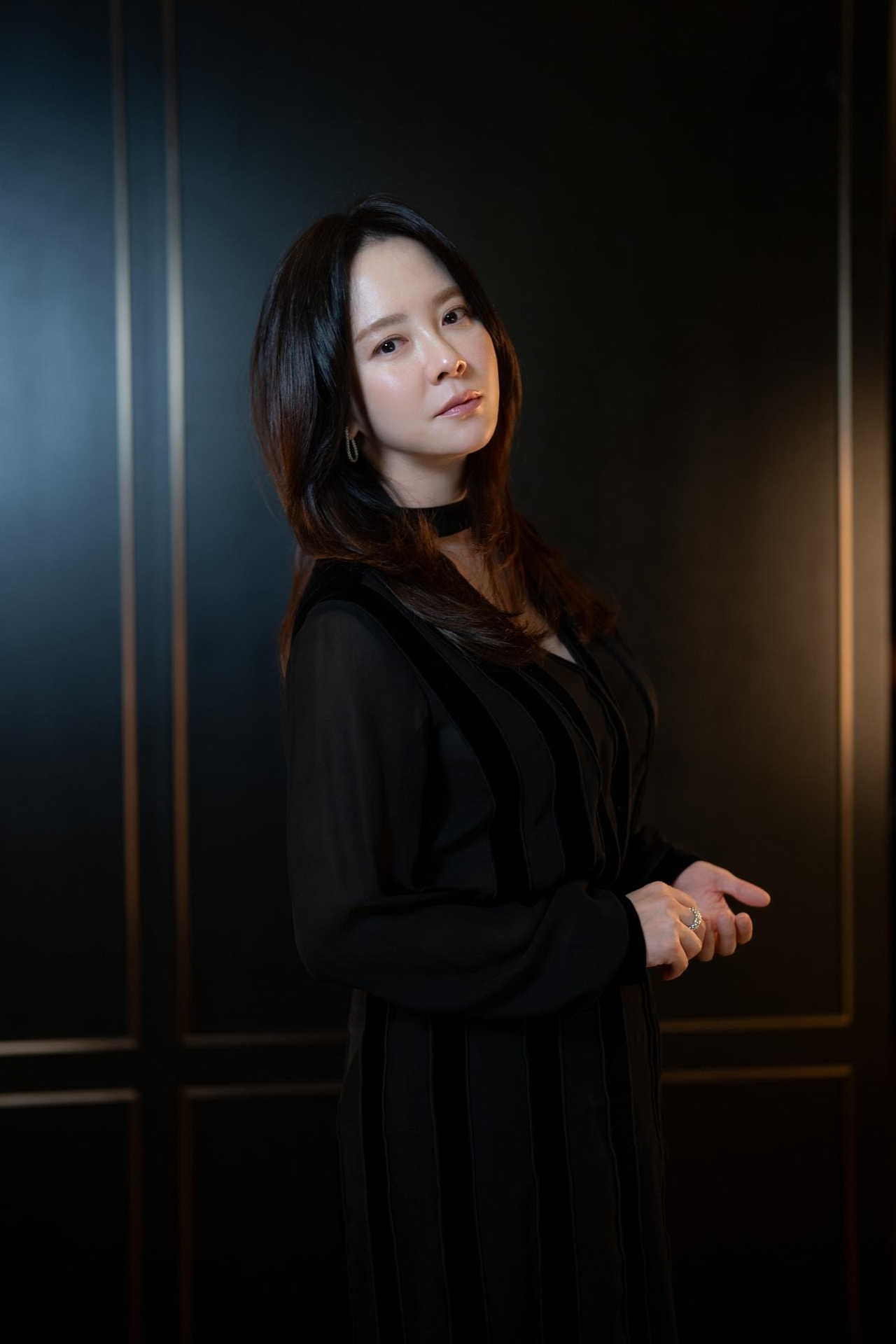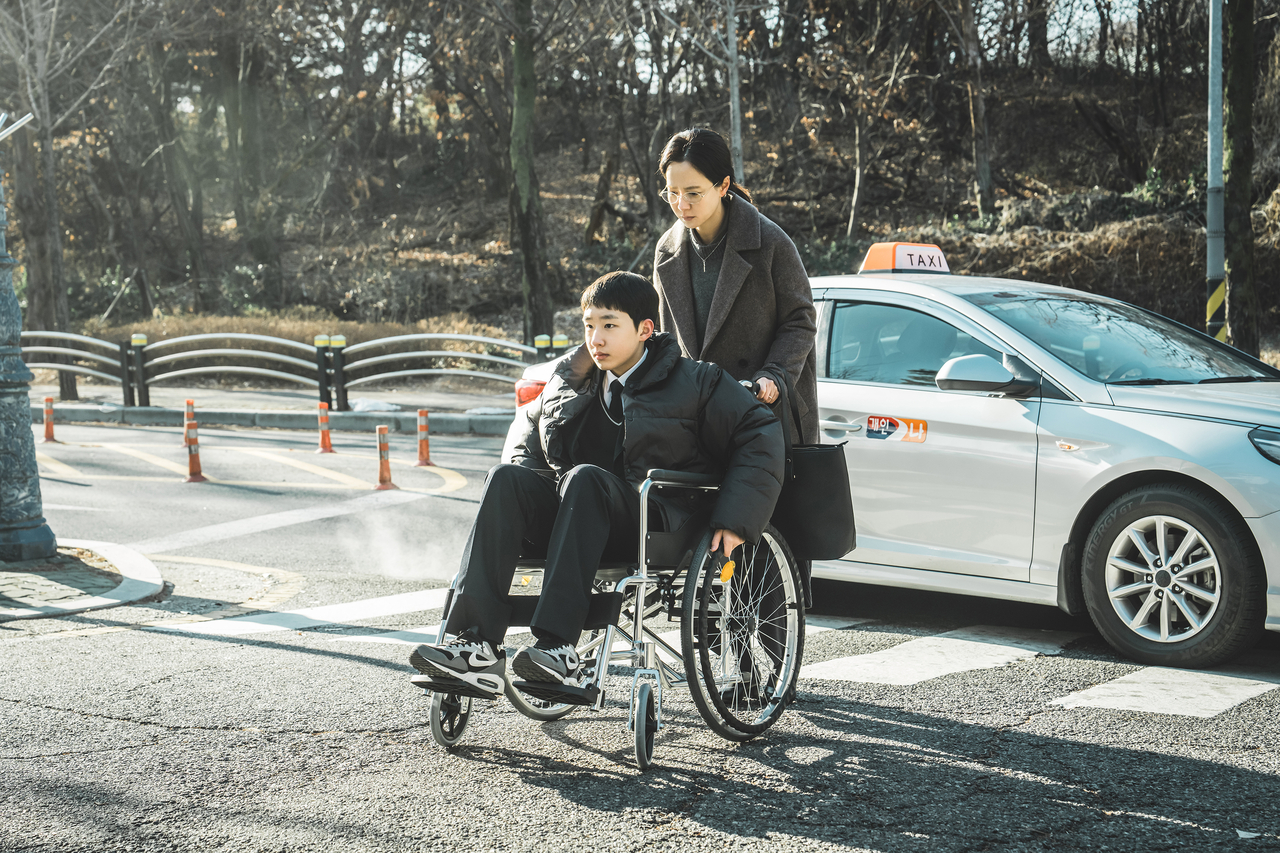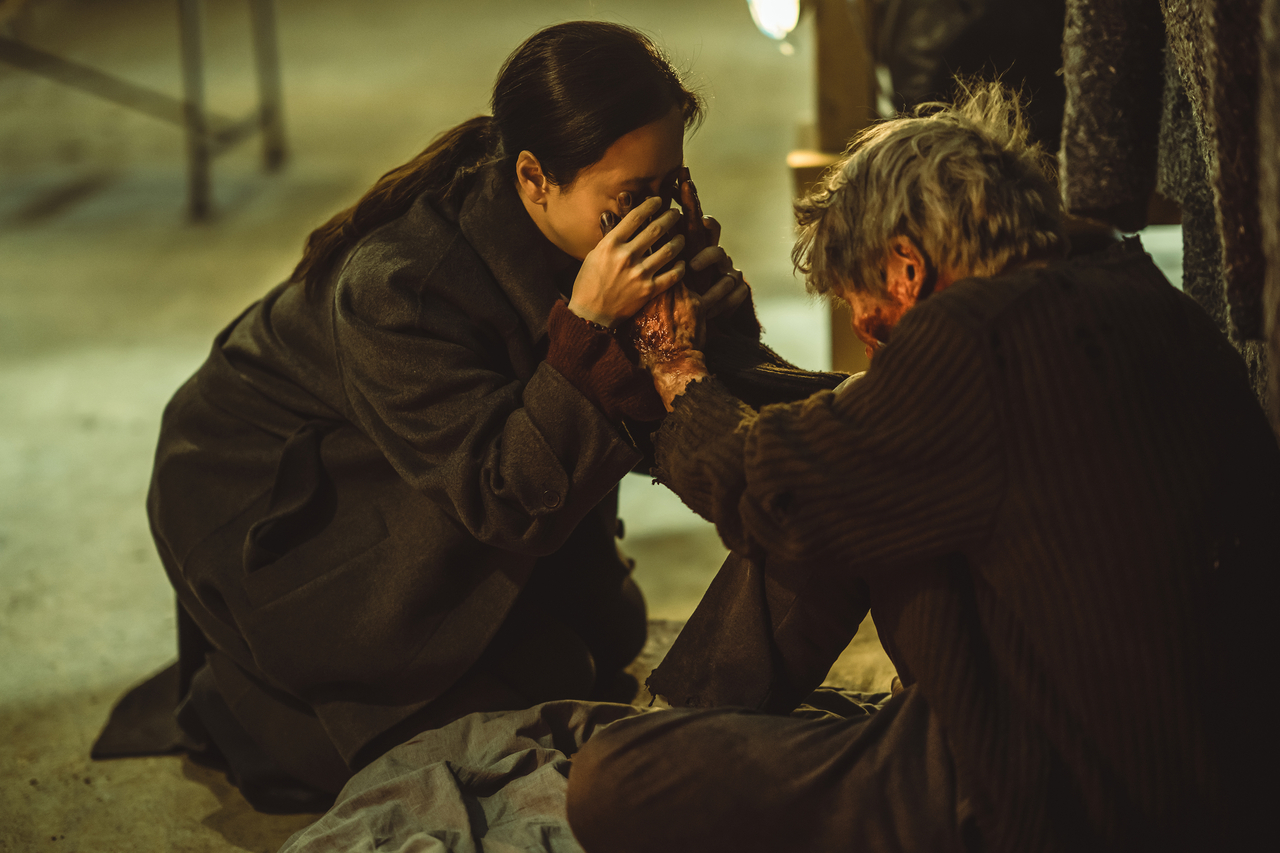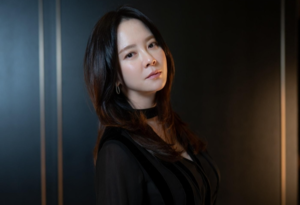After 15 years as Korea’s most recognizable variety star, the actor still wants to prove she can disappear into roles
 Song Ji-hyo (Mindmark Inc.)
Song Ji-hyo (Mindmark Inc.)
“We’ve been doing this for 15 years now. I started at 30, and I’m 45 today,” Song Ji-hyo says over coffee in Samcheong-dong, Seoul. “At some point, ‘Running Man’ will just be a memory. But until then, I’m giving it everything. I’ll keep going until my knees give out completely.”
Of course, you would expect that level of commitment from Song, who has been at the center of Korea’s longest-running variety juggernaut since 2010. For a decade and a half, she’s been “Ace Ji-hyo” — the blank-faced strategist who somehow wins almost every game, the brick-breaking tough girl who never backs down from a challenge. The show turned her into a household name across Asia and beyond, her signature spaced-out expressions and uncanny luck at games becoming part of the cultural vocabulary.
But there’s another Song Ji-hyo most people miss. She’s been grinding away as an actor since 2003, when she made her debut as a ghost-summoning high schooler in the horror classic “Wishing Stairs.” Five years later came “A Frozen Flower,” the big-budget period drama where she played the queen — a role that made headlines for reasons beyond the script. Then “Running Man” happened in 2010, and the rest is history.
“I see ‘Running Man’ as a project, same as any other film,” she says. “I chose it without regret, and I want to see it through to the end.”
That kind of fame, however transformative, could sink an acting career. A fixed image is poison for actors who need to keep shifting, and the goofy, lighthearted persona from “Running Man” could easily typecast someone forever. But Song has always seen the bright side.
“Before ‘Running Man,’ I was stuck doing dark stuff,” she explains. “Horror films, thrillers. My deep voice was a problem back then — people said it dragged things down. And then ‘Running Man’ came along, and suddenly people saw me differently. Bright, positive, energetic. After that, lighter scripts started rolling in.”
The variety show stardom notwithstanding, recent years have brought more serious projects. There was “Intruder,” where she played an enigmatic woman hiding secrets, and just weeks ago, “Home Behind Bars,” where she delivered a measured performance as a prison worker caring for an inmate’s daughter. Now comes “Savior,” a mystery occult film that casts her as the lead.
 “Savior,” starring Song Ji-hyo (right) (Mindmark Inc.)
“Savior,” starring Song Ji-hyo (right) (Mindmark Inc.)
The film follows a family moving to a rural village after a devastating car accident leaves their son unable to walk and Song’s character, Seon-hee, losing her eyesight. When the father (Kim Byong-chul) brings home a dying old man he has hit in another accident, miracles start happening — the son walks again, then more. But when Seon-hee meets Chun-seo (Kim Hieora), a single mother facing her own tragedy, at a local church, she realizes they’re caught in a zero-sum game where one family’s blessing leads to another’s curse.
It’s a largely forgettable work that has a lot to say about desire and how people rationalize hurting others but can’t quite figure out what kind of story it’s telling. One can only wonder why the film keeps reaching for tired occult horror — centered on a zombified old man whose lurching movements and looks seem more silly than menacing — when it needs clarity to land its moral argument. The two elements actively sabotage each other, and nothing ever quite clicks.
 “Savior,” starring Song Ji-hyo (left) (Mindmark Inc.)
“Savior,” starring Song Ji-hyo (left) (Mindmark Inc.)
The acting, at least, holds up. Song plays Seon-hee’s descent into desperation with conviction, her growing obsession palpable as her vision deteriorates. It’s a performance that reaffirms there’s more to her than the variety show star.
She did put some serious thought into the role, she tells reporters. The thick-framed reading glasses were her idea — she wanted the lenses visible from the side, thick enough that audiences would notice. “I really couldn’t see. Everything looked flat, no depth perception. But that made it real. I was feeling around with my hands, being cautious, leaning in close to see.”
The church sermon scene — one of the film’s most charged moments, where Seon-hee confesses her gratitude for God’s mercy before the village’s fanatic churchgoers — gave her the most trouble. “I’m not someone who shares personal stuff publicly, so standing up there talking about my pain felt really uncomfortable,” she says. “I watched a lot of sermon videos to understand how emotions build. You can feel them gearing up for this cathartic release.”
Here’s the thing, though: When Song first read the script, she wanted Chun-seo’s role (played with convincing fierceness by Kim Hieora), not the lead. Seon-hee gains what she lost through miracles; Chun-seo watches everything she has slip away. “I’m more drawn to playing loss than gain,” Song says. “That speaks to me more.”
It comes down to personality, she says. “I’m risk-averse. When there’s potential upside and possible downside, even if the upside is bigger, I focus on the downside. I can’t stand losing what I have.” She pauses. “Once trust shatters, no amount of comfort helps. You just don’t trust anything until you’ve healed yourself.”
So what would Song do if she were in Seon-hee’s shoes? If she could have everything she wanted at someone else’s expense?
“If there’s a cost involved, I wouldn’t take it. I’d rather just live my life through my own effort and ability. That’s my style.”
“Savior” opens in theaters Nov. 5.
moonkihoon@heraldcorp.com

